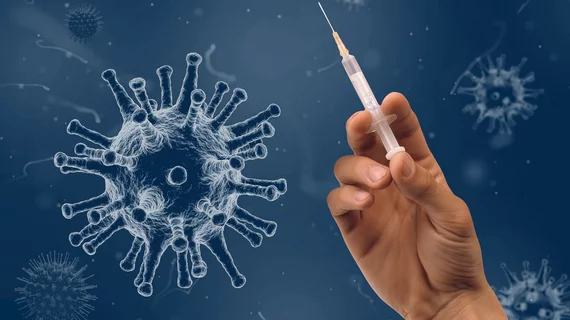American Hospital Association wants all healthcare workers vaccinated
The AHA is urging all provider organizations to require COVID-19 vaccinations for their healthcare workers while also pledging support to organizations that adopt such mandates.
In a policy statement issued late Wednesday, AHA emphasizes that the COVID vaccines now in circulation can protect not only healthcare workers themselves but also the patients and co-workers around whom they work.
Unvaccinated individuals face “a substantial risk of severe illness and death,” AHA notes, and the most vulnerable are those with underlying health conditions, “like many patients in hospitals or who are seen in hospital-based ambulatory settings.”
AHA acknowledges that hospitals and health systems will need to take into account local laws and related factors as they work out how—and whether—to adopt mandatory vaccination.
However, the group is not mincing words on overall where it stands.
“COVID-19 vaccines protect healthcare personnel when working both in healthcare facilities and in the community,” AHA states. “They provide strong protection against workers unintentionally carrying the disease to work and spreading it to patients and peers.”
In a succinct press release, AHA’s president and CEO, Rick Pollack, adds:
The evidence is clear: COVID-19 vaccines are safe and effective in reducing both the risk of becoming infected and spreading the virus to others. The AHA supports hospitals and health systems that choose, based on local factors, to mandate COVID-19 vaccines for their workforce. Doing so will help protect the health and well-being of health care personnel and the patients and communities they proudly serve.”

